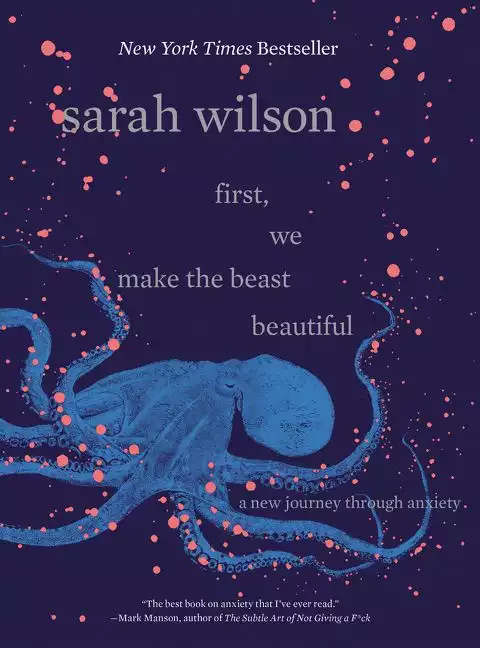
Once in a blue moon, I read a book so incredible that I can’t stop talking about it. I have to recommend it constantly–at book festivals when I speak on panels, to customers at the Checkout Desk, to friends and family, and on social media. “First, We Make the Beast Beautiful: A New Journey Through Anxiety” by Sarah Wilson is one of these special books.
Not only is Wilson’s sharp, warm, conversational writing style a joy to read, but there is also the simple truth that we all experience moments of heightened anxiety from time to time. Maybe it’s during a move, a divorce, a career transition, or a period of financial instability. Maybe it’s a generalized sort of anxiety caused by the chaotic world we live in, with its 24-hour news cycles full of political turmoil, discussions of climate change, and uncertainty about the future.
Wilson crafted her book around the central tenet that anxiety can be a blessing, not a curse. People who live with it must, on a daily basis, cope with restless, racing thoughts; a brain that jumps to worst-case scenarios before any other possibility; a low-grade panic that is always present and frequently spikes, manifesting in physical symptoms like shortness of breath, itching and hives, headaches, and nausea.
But, Wilson posits, there is light in this darkness. All those frantic thoughts, that deep-dive introspection, that endless cycling worry means those who live with anxiety also often have greater emotional sensitivity, a heightened sense of empathy and compassion, and a creative, imaginative mind. Not always easy to remember that when you’re in the midst of a panic attack, but something Wilson urges her readers to think about nevertheless.
As someone who lives with anxiety and depression, I’m constantly trying to figure out ways to better manage my mental health. If those of us with diagnosed disorders can reorient our minds to look at our mental illness as something that makes us unique, as something that colors our lives beautifully and enhances our humanity, anxiety can thereby become easier to manage.
Regardless of how or when or why your anxiety manifests–whether it’s chronic or situational–this book could be an important and helpful read for you. As I read, I felt the buzzing electric clouds of worry that perpetually inhabit my brain quiet, allowing me to assess myself and my mental health with a little more clarity.
And, even if you don’t live with anxiety, you probably have people in your life who do. Reading this book will help you understand what it feels like for those loved ones, and how they move through the world with their neurodivergent brains. After all, it’s essential for us to read books about life experiences that aren’t like our own, so we can develop empathy for the people around us. This is how, book by book, we can build a better, kinder world.
